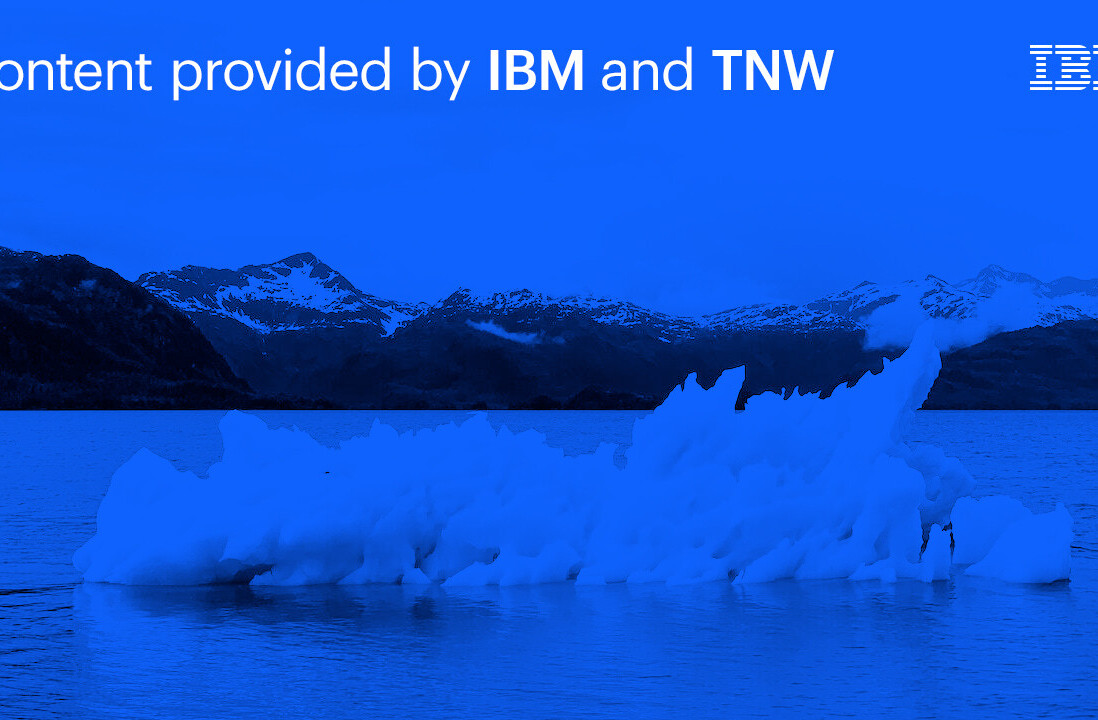
 Every week we publish an interview with a start-up. We ask five questions, hoping the answers will give you inspiration and new views.
Every week we publish an interview with a start-up. We ask five questions, hoping the answers will give you inspiration and new views.
This time we’re interviewing the team of Regator, an Atlanta-based start-up that aims to mainstream RSS. They’ve created a great collection of good blogs, all hand-picked, for you to browse, read, and share. So here they are, Scott Lockhart, Chris Turner, Kimberly Turner, and Team Captain Reg, from their little green house in Georgia, US.

Scott, Kimberly, Chris, and Reg
How did you come up with the idea of Regator?
 “When the idea was forming about ten months ago, we didn’t plan to gather the best blogs on everything from archeology to beekeeping to celeb gossip. And we certainly didn’t plan to have built-in audio and video players, Twitter and Facebook sharing, or the level of social interaction we ended up with. Scott was working in real estate (not in an I-want-to-sell-you-a-house kind of capacity, but in a I-want-to-use-technology-to-improve-the-industry sort of way) and noticed there was no site where he could go to see the best real estate blog posts without all the rubbish. He decided to build one and call it Regator. Meanwhile, Chris was learning PHP for a billiards video game he was working on. He was discovering that he could do all sorts of nifty stuff pretty easily with the new language, and after talking with Scott about Regator, he spent a couple weeks teaching himself mySQL and Ajax so he could start building the site. It wasn’t long before it moved beyond Scott’s initial real estate focus. When Kimberly, who is a magazine editor and therefore used to being picky about writing and content, was asked to select a few blogs for the site, the team was complete, and the idea has been evolving ever since. Regator’s three founders live together in a little green house in Georgia (the U.S. state, not the nation), and our constant access to one another for brainstorming probably caused it to go in directions that it might not have otherwise gone.”
“When the idea was forming about ten months ago, we didn’t plan to gather the best blogs on everything from archeology to beekeeping to celeb gossip. And we certainly didn’t plan to have built-in audio and video players, Twitter and Facebook sharing, or the level of social interaction we ended up with. Scott was working in real estate (not in an I-want-to-sell-you-a-house kind of capacity, but in a I-want-to-use-technology-to-improve-the-industry sort of way) and noticed there was no site where he could go to see the best real estate blog posts without all the rubbish. He decided to build one and call it Regator. Meanwhile, Chris was learning PHP for a billiards video game he was working on. He was discovering that he could do all sorts of nifty stuff pretty easily with the new language, and after talking with Scott about Regator, he spent a couple weeks teaching himself mySQL and Ajax so he could start building the site. It wasn’t long before it moved beyond Scott’s initial real estate focus. When Kimberly, who is a magazine editor and therefore used to being picky about writing and content, was asked to select a few blogs for the site, the team was complete, and the idea has been evolving ever since. Regator’s three founders live together in a little green house in Georgia (the U.S. state, not the nation), and our constant access to one another for brainstorming probably caused it to go in directions that it might not have otherwise gone.”
What was your biggest challenge during the development process?
 “Our biggest challenge was—and still is—that there are only three of us, and two of us have full-time day jobs. We aren’t funded yet, so we’ve done everything out of pocket and in our “spare” time. We’re talking about a LOT of caffeine, late nights, stressful days, and missed time with our friends, but the lesson for other startups is that you can create something great without a big staff or budget if you have the passion and determination . . . cheesy sounding, but true. We also discovered that disagreeing about almost every single element of a project can be a good thing. The three of us are picky and opinionated in three very different ways, so there were usually two of us who didn’t think a given idea was good enough, and one of us who did. By the time we’d argued our points and compromised enough that we could all give a particular feature the thumbs-up, it was generallly pretty damned awesome. We’re family (Kimberly is Scott’s wife and Chris’s sister), so we’re probably less likely to have lasting consequences from an argument about a website than folks who are just working together. So try that tactic at your own risk.”
“Our biggest challenge was—and still is—that there are only three of us, and two of us have full-time day jobs. We aren’t funded yet, so we’ve done everything out of pocket and in our “spare” time. We’re talking about a LOT of caffeine, late nights, stressful days, and missed time with our friends, but the lesson for other startups is that you can create something great without a big staff or budget if you have the passion and determination . . . cheesy sounding, but true. We also discovered that disagreeing about almost every single element of a project can be a good thing. The three of us are picky and opinionated in three very different ways, so there were usually two of us who didn’t think a given idea was good enough, and one of us who did. By the time we’d argued our points and compromised enough that we could all give a particular feature the thumbs-up, it was generallly pretty damned awesome. We’re family (Kimberly is Scott’s wife and Chris’s sister), so we’re probably less likely to have lasting consequences from an argument about a website than folks who are just working together. So try that tactic at your own risk.”
Can you describe Atlanta’s start-up culture compared to Silicon Valley?
 “Ah, Atlanta, Georgia. We’ve got lots of streets called Peachtree, perfect weather, and the world’s busiest airport—but when it comes to a start-up culture, we seem to be a little lacking. Some guy who was building a site handed Chris his business card in the line for the bathroom at a dance party a few months back, and that’s about the extent to which we’ve witnessed a start-up culture here. Then again, this is our first time doing this sort of thing, so maybe it’s here and we haven’t stumbled upon it yet. Atlanta is an exceptionally creative, vibrant city with an incredible culture for other types of creative people (musicians, actors, artists, writers, DJs, etc.). We’re hoping to bring some of the local tech crowd and bloggers out of hiding at our launch party at Paste magazine on September 4, and start to create a dialogue about all the creative endeavors going on locally. We’ve talked about having monthly meetups at a pub to get Atlanta’s smart, creative people together to network and talk about projects—and drink beer.
“Ah, Atlanta, Georgia. We’ve got lots of streets called Peachtree, perfect weather, and the world’s busiest airport—but when it comes to a start-up culture, we seem to be a little lacking. Some guy who was building a site handed Chris his business card in the line for the bathroom at a dance party a few months back, and that’s about the extent to which we’ve witnessed a start-up culture here. Then again, this is our first time doing this sort of thing, so maybe it’s here and we haven’t stumbled upon it yet. Atlanta is an exceptionally creative, vibrant city with an incredible culture for other types of creative people (musicians, actors, artists, writers, DJs, etc.). We’re hoping to bring some of the local tech crowd and bloggers out of hiding at our launch party at Paste magazine on September 4, and start to create a dialogue about all the creative endeavors going on locally. We’ve talked about having monthly meetups at a pub to get Atlanta’s smart, creative people together to network and talk about projects—and drink beer.
In terms of comparing it to Silicon Valley, there are fewer people doing this sort of thing here, so that limits learning opportunities and networking a bit, but we do stay in touch with the west coast. Sites like TechCrunch, Mashable, ReadWriteWeb, and others have been fantastic about covering us, and Scott goes to California for events like the TechCrunch party, so we’re not cut off from that whole scene. At the same time, Atlanta is so much cheaper (and because we’re self-funded, that’s a BIG plus), and there’s not as much tech-related noise to talk over when it comes to getting noticed and getting attention. Plus, because Regator’s market is really the mainstream, “normal” person who may or may not be super tech-savvy, it’s not vital for us to be in the Valley.
What will be the influence of your start-up on the next web?
 “Regator is making RSS accessible for mainstream non-geeks. There’s more and more incredible commentary, information, and entertainment out there, but so many people don’t understand how to find it (especially because they have to wade through more and more spammy, poorly written junk to get to it). We think that’s a shame, and that all that great content shouldn’t belong exclusively to early adopters, so we built Regator. Your mom could go to Regator and, even if she has never heard of an RSS feed, she could find blog posts on things that interest her within a few seconds. Obviously we’re not the first blog directory, but we are absolutely the most selective and the one that provides the most tools to help you find, organize, and share high-quality posts—even if you’re not a tech nerd. RSS will play a vital role in the next web, so we think it’s really important to help mainstream users get comfortable with it.=
“Regator is making RSS accessible for mainstream non-geeks. There’s more and more incredible commentary, information, and entertainment out there, but so many people don’t understand how to find it (especially because they have to wade through more and more spammy, poorly written junk to get to it). We think that’s a shame, and that all that great content shouldn’t belong exclusively to early adopters, so we built Regator. Your mom could go to Regator and, even if she has never heard of an RSS feed, she could find blog posts on things that interest her within a few seconds. Obviously we’re not the first blog directory, but we are absolutely the most selective and the one that provides the most tools to help you find, organize, and share high-quality posts—even if you’re not a tech nerd. RSS will play a vital role in the next web, so we think it’s really important to help mainstream users get comfortable with it.=
You can make up this question yourself!
 Would you have done anything differently if you’d had more time?
Would you have done anything differently if you’d had more time?
“Not a whole lot. Things move so quickly on the web that there was definite pressure to get the site out there before someone else did something along these lines. That’s a good thing though, because otherwise we could’ve continued to add features forever. We’ve still got a lot of tricks up our sleeve: an iPhone version, widgets, a toolbar, improved commenting, a unique sharing page for each user. We’re far from finished. With just three of us, we’re limited a little in terms of our pace, but there’s really just one thing we’re sad about having to give up entirely because of time constraints: making a life-sized mascot costume of Reg, our spokesgator, for our launch party and promotional events. We had big plans for that. Chris made a 3D model of Reg with a person inside to figure out how the wearer would balance Reg’s ginormous snout and tail. The plan was to use Chris’s sculpture background, Kimberly’s love of Muppets, and information garnered from an episode of “How It’s Made” (it doesn’t look that tough, right?) to sculpt a light-weight foam gator. Our friends were literally lining up for a chance to wear it; though we had to turn several of them away because our models showed that the wearer couldn’t be taller than about 5’6”. But after pricing the foam, fabric, and materials, we decided it was gonna be too pricey and too time-consuming. And that Reg would probably crash into members of the media and whip the cocktails out of people’s hands at the party anyway.”
Get the TNW newsletter
Get the most important tech news in your inbox each week.




